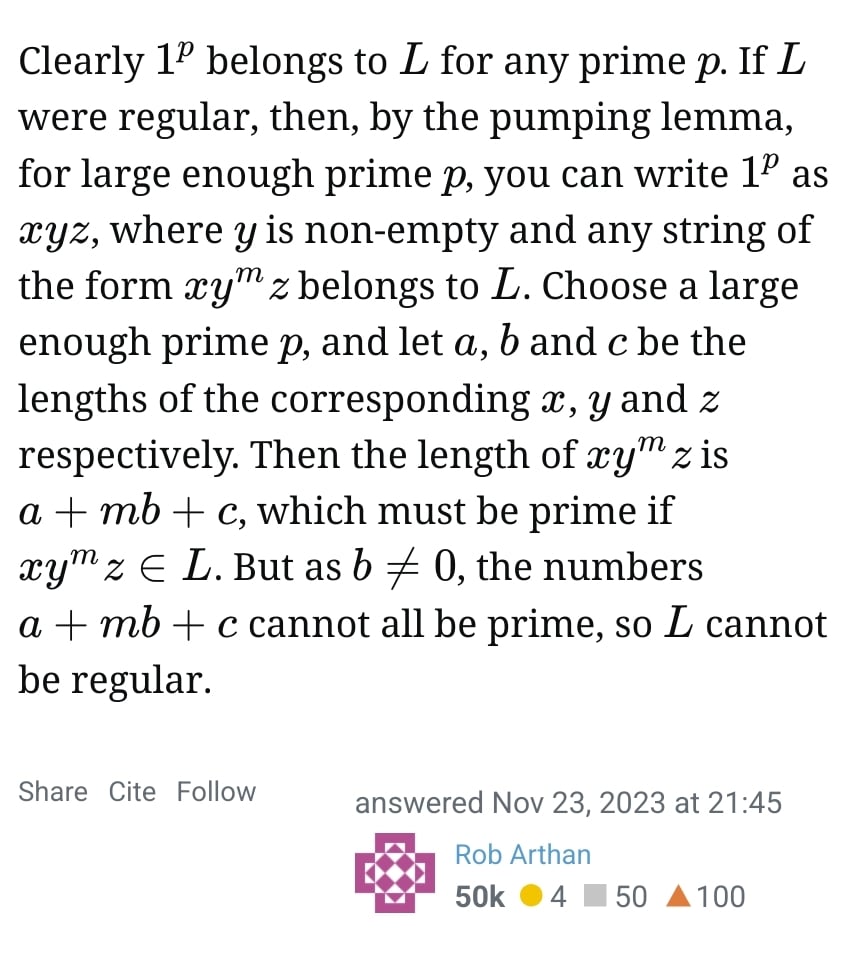

You got downvoted here but you’re absolutely right. It’s easy to prove that the set of strings with prime length is not a regular language using the pumping lemma for regular languages. And in typical StackExchange fashion, someone’s already done it.
Here’s their proof.
Claim 1: The language consisting of the character 1 repeated a prime number of times is not regular.

A further argument to justify your claim—
Claim 2: If the language described in Claim 1 is not regular, then the language consisting of the character 1 repeated a composite number of times is not regular.
Proof: Suppose the language described in Claim 2 is regular if the language described in Claim 1 is not. Then there must exist a finite-state automaton A that recognises it. If we create a new finite-state automaton B which (1) checks whether the string has length 1 and rejects it, and (2) then passes the string to automaton A and rejects when automaton A accepts and accepts when automaton A rejects, then we can see that automaton B accepts the set of all strings of non-composite length that are not of length 1, i.e. the set of all strings of prime length. But since the language consisting of all strings of prime length is non-regular, there cannot exist such an automaton. Therefore, the assumption that the language described in Claim 2 being regular is false.

If the set of all strings of composite length is a regular language, you can use that to prove the set of all strings of prime length are also a regular language.
But it’s also easy to prove that the set of language of strings of prime length is not regular, and thus the language of strings of composite length also can’t be regular.
A more formal proof.